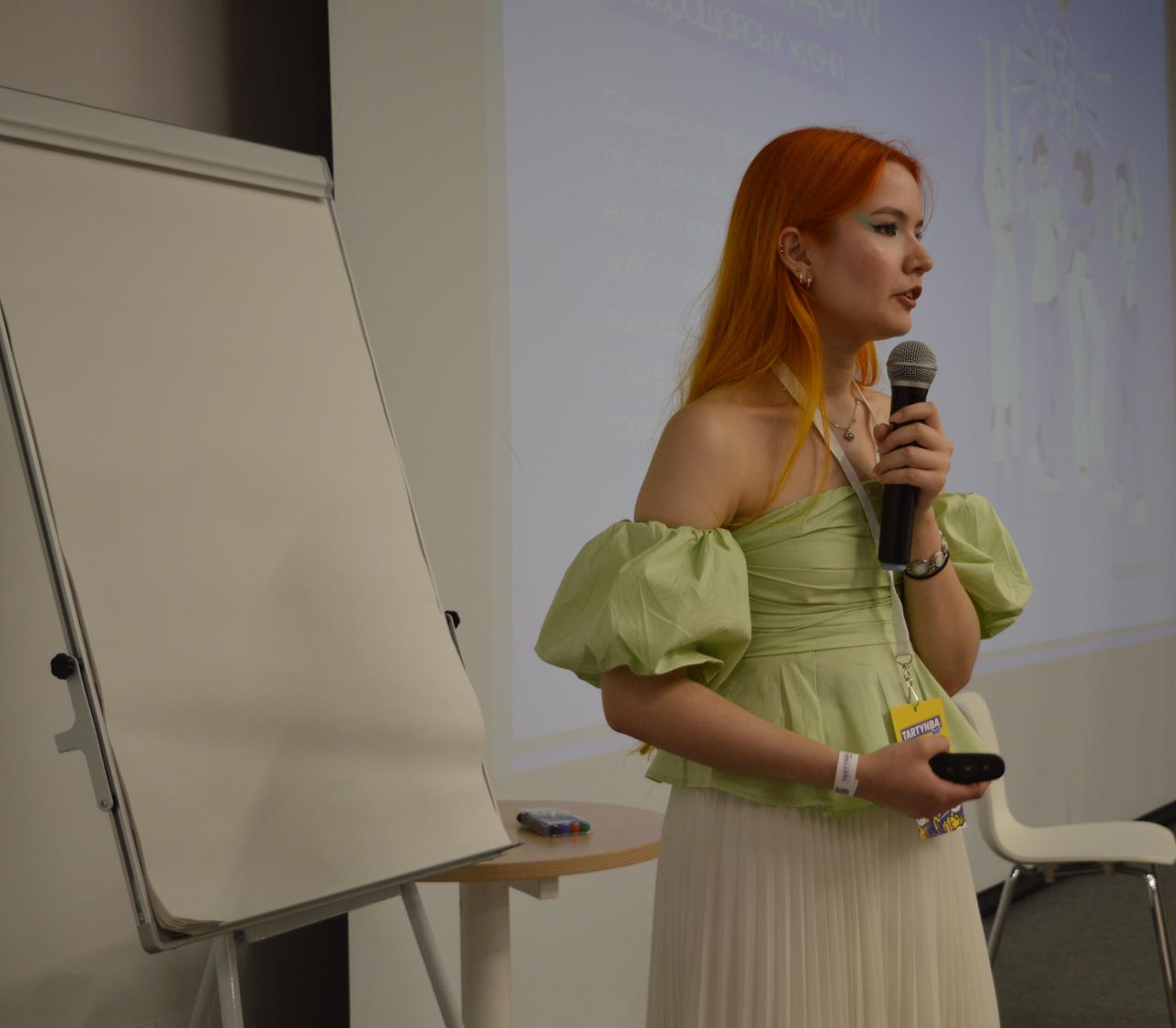In the words of Alina Ilinskaya: “No One Should Suffer in Silence”
Date:

Alina Ilinskaya is a 20-year-old Kazakhstani activist, psychologist, and the founder of the “Būlbūl” initiative to support survivors of violence in Central Asia. As a survivor herself, she transformed her trauma into strength, helping others through technology-driven solutions and psychological support. Her AI chatbot “Bulka”, built on neural networks, supports survivors of violence by offering guidance and resources they need at every stage of their healing journey. On International Girls in ICT Day, discover Alina’s journey and how digital tools can change the lives of women and girls in the region.
Breaking the Silence: My Journey with “Būlbūl”
“My name is Alina Ilinskaya. I am a psychologist, an accredited ICTA coach, and the founder of 'Būlbūl', a non-commercial initiative supporting survivors of sexual violence and harassment. As a child, I endured repeated violence, which shaped my life in profound ways. It took me years to say, 'This happened to me,' and seek help. These years of silent crying for help were the most difficult stage for me. I founded 'Būlbūl', so that no one else would have to face this struggle alone. The name, meaning nightingale in the Kazakh language, is inspired by the Greek myth of Philomela, a woman silenced by violence who found a way to tell her story to her sister, Procne, through a carefully woven tapestry. Just as she overcame silence, 'Būlbūl' helps survivors reclaim their voices and find support."

"Since its launch, 'Būlbūl' has conducted over 90 educational trainings, addressing trauma-informed care, first psychological aid, and support for survivors. Through research, advocacy, and outreach, we help individuals heal and challenge stigma surrounding violence."
“Bulka”: AI-Powered Psychological Support
“One of our biggest milestones was the launch of 'Bulka', an AI-driven chatbot, offering psychological support to survivors who may not be ready or able to seek professional help. Accessible via Telegram, 'Bulka' is trained to conduct a dialogue, provide support, share useful theoretical information and practical exercises on 24 of the most common psychological requests that survivors face (for example, a sense of shame, obsessive thoughts, fear of intimacy, etc.). The chatbot also provides contacts of hotlines and crisis center contacts in Kazakhstan, Kyrgyzstan, Uzbekistan and Tajikistan. Since its inception, 'Bulka' has undergone four major updates, now incorporating large language models trained on psychological literature for improved responsiveness. To understand psychological characteristics and distinguish nuances, we trained this model on a large amount of psychological literature to ensure the reliability and correctness of the information. Our goal is to ensure survivors can access confidential, free support whenever they need it. 'Bulka' now supports over 200 active users, with an impressive 100 signing up in its very first month."
Challenges in Advocacy
“Funding remains one of our biggest obstacles. We rely on donations, grants, and small revenue streams like sticker sales. Another challenge is cultural stigma, as gender stereotypes in Central Asia hinder conversations about violence, while beliefs about sexuality and bodily autonomy stimulate the spread of rape culture. Sometimes educational institutions cancel our trainings, fearing backlash, and data collection for research is restricted. Survivors often face judgment and disbelief, limiting their access to support. Despite these challenges, we continue working on expanding 'Bulka', developing educational content, and launching animated safety videos for schoolchildren. Our mission is clear: survivors should never feel alone in their healing journey.

Looking Forward
"The adoption of the Beijing Declaration was undoubtedly an incredibly significant historical step, which, like every day of these 30 years of continuous work on its realization, has brought us closer to the elimination of violence and discrimination against women and girls. Over the past 30 years in Kazakhstan, one can trace such legislative changes as accession to the Convention on the Elimination of All Forms of Discrimination against Women (CEDAW) and the adoption of the law on women's rights and children's safety, which oblige the protection of women's rights and toughen penalties for violence. In addition, civil society projects in Central Asia have achieved significant results in combating gender stereotypes and stigma like 'Tell me Sister' in Tajikistan and the 'HeForShe' movement launched by UN Women, which engages men in the fight for gender equality. However, much remains to be done. The absence of an institution of power that protects against discrimination and the inadequate training of law enforcement agencies often result in the ineffectiveness of laws in practice.
I believe that it is important to celebrate every victory - every woman and girl who received help - but we should never forget about the millions of others whose rights are violated every day. Education and awareness are key to prevention. Moving forward, we aim to increase outreach, conduct more research, and refine digital tools for survivor assistance. Every step—whether it’s launching an awareness campaign or helping one survivor seek support - brings us closer to a world where no one suffers in silence.
To young women pursuing AI, I say this - do not underestimate yourself. Women excel in male-dominated fields, and your determination, learning, and resilience can drive real change."